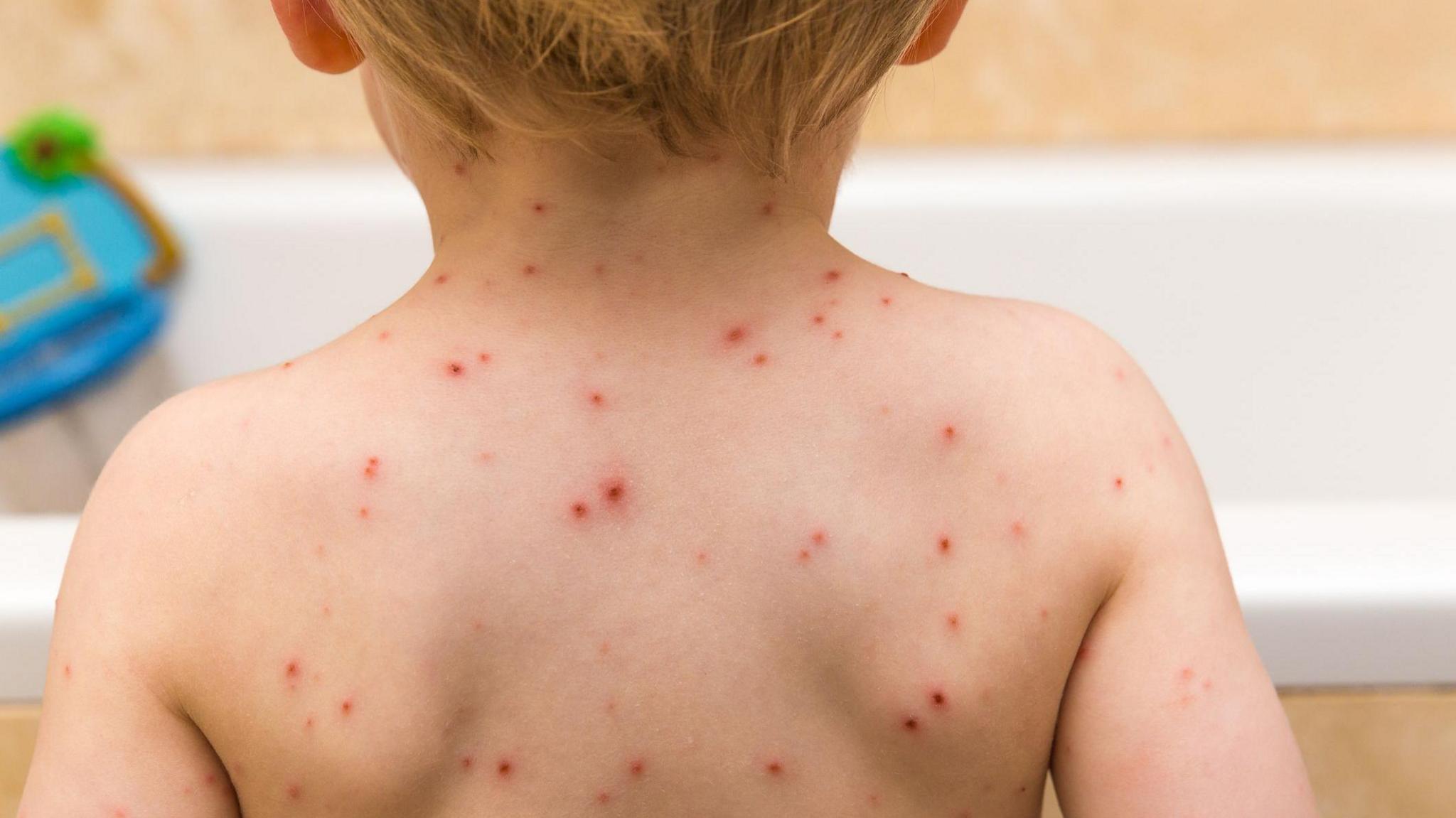Children in NI to be offered free chickenpox vaccine
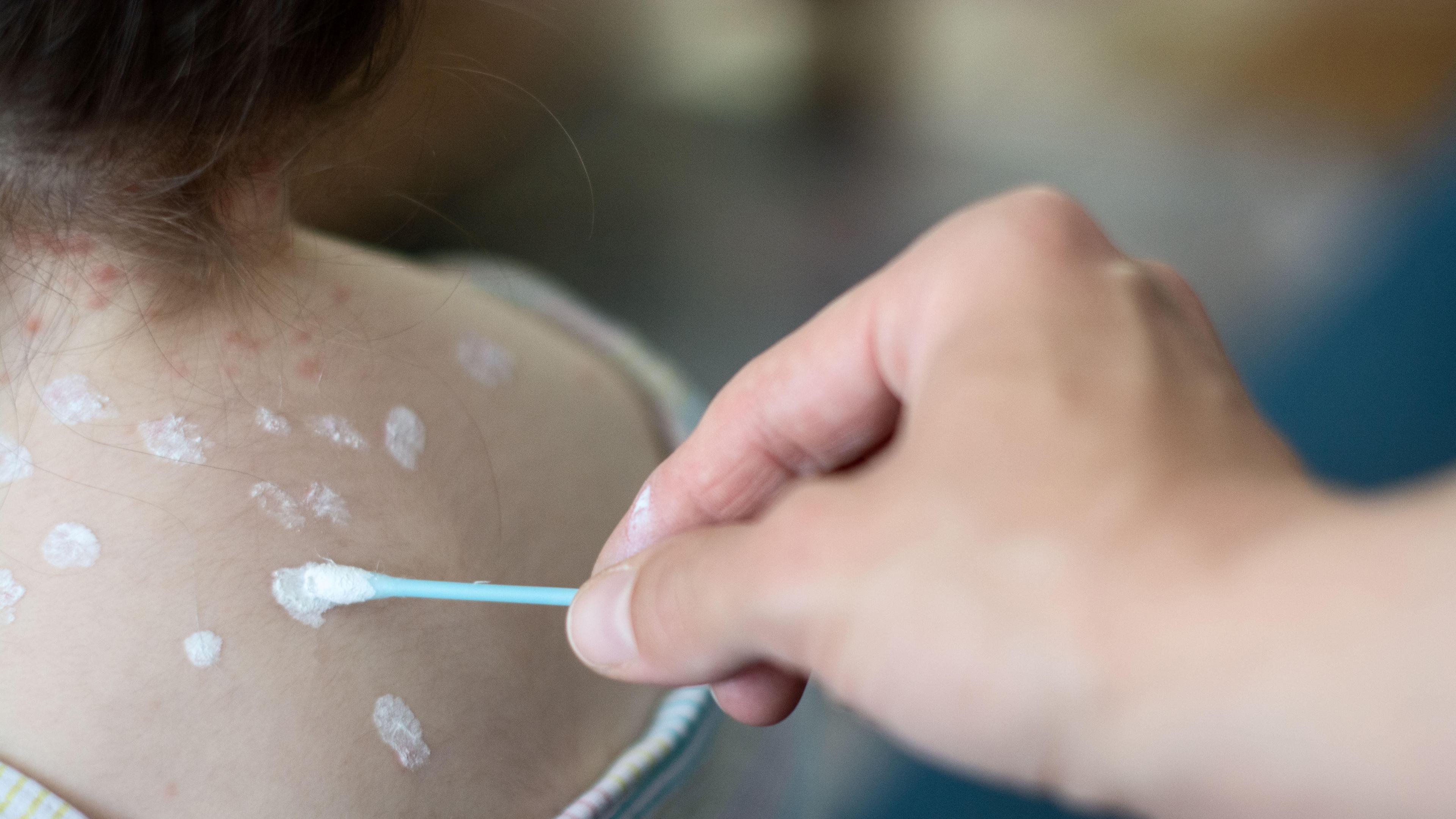
Eligibility will be based on how old a child is when the programme starts and parents will be provided with more information nearer the time
- Published
Children in Northern Ireland will be offered a free vaccination against chickenpox for the first time next year.
Chickenpox, external, which causes a spotty rash, is a common infection that spreads easily and mostly affects children. It usually gets better on its own after one to two weeks, but can be serious in some people.
Children in England and Wales will also be offered the vaccine from January.
Scotland is also expected to offer the vaccine on the NHS, but has not given a date yet.
The Department of Health (DoH) said eligibility will be based on how old a child is when the programme starts and parents will be provided with more information nearer the time.
The Health Minister, Mike Nesbitt, said: "We are empowering parents to safeguard their children against chickenpox and its potentially serious complications with a vaccine, which has been proven safe and effective in other countries across the world.
The DoH said rollout of the MMRV vaccine is based on expert scientific advice from the Joint Committee on Vaccination and Immunisation (JCVI), following research showing the significant impact of severe cases of chickenpox on children's health, hospital admissions and associated costs.
"This vaccine prioritises children's wellbeing and will reduce school and nursery absences, while supporting parents by minimising the need for take time off work to care for sick children.
"I am committed to ensuring every child receives the best possible start in life, and the introduction of this vaccine into the routine childhood vaccination schedule will help achieve this," said Mike Nesbitt.
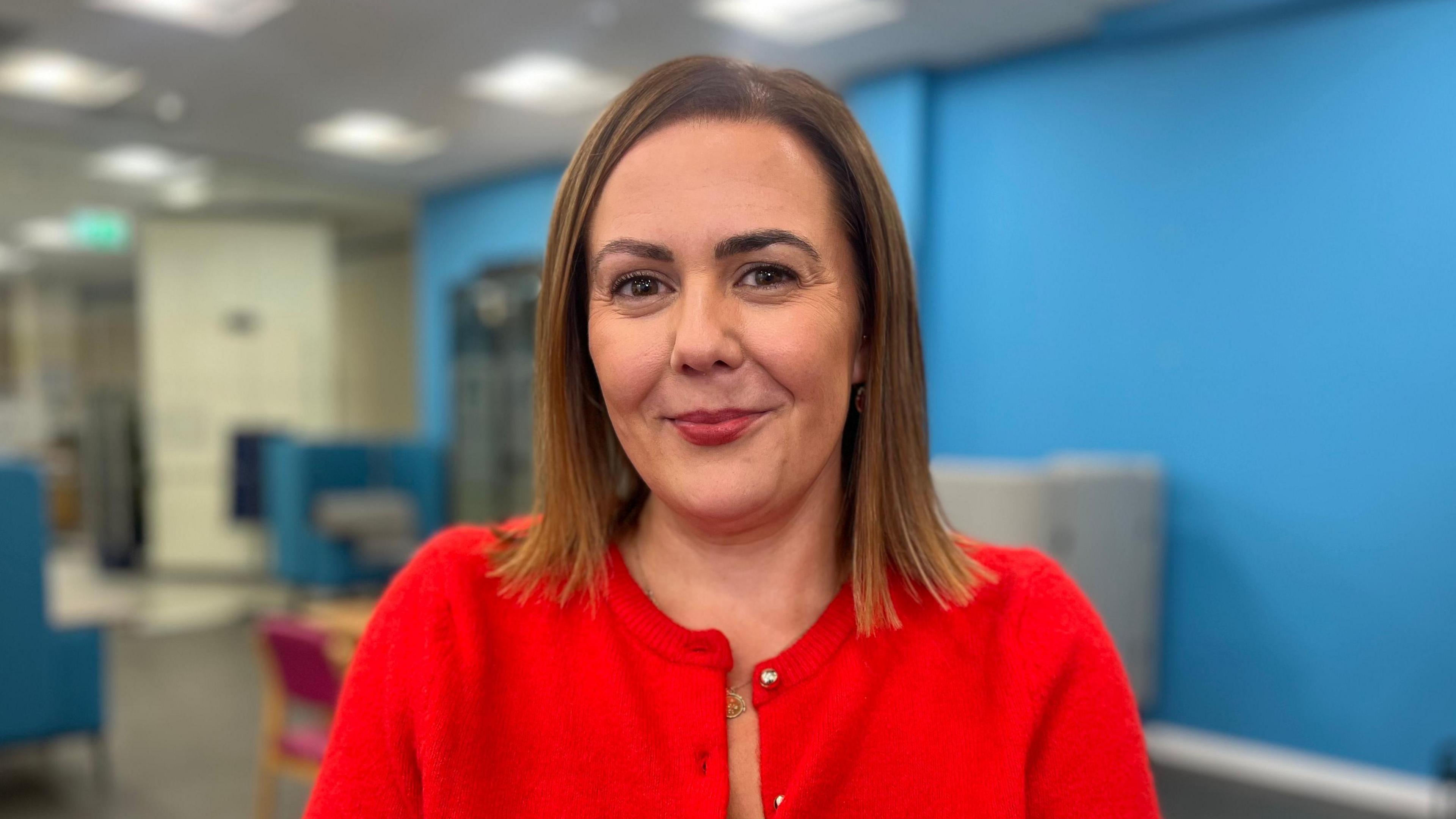
Rachel Spiers is the Immunisation and Vaccination Programme Manager at the PHA
Rachel Spiers, the Immunisation and Vaccination Programme Manager at the Public Health Agency (PHA), said if a child has already had their MMR vaccine it is "completely safe to get another MMRV dose".
"Children that are newly coming through the vaccination schedule will be called for MMRV at 12-months-old and then have a new appointment at 18-months-old but there will be an element of catch-up", she said.
"We're expecting that the programme will reach up to the age of six and the catch up will be for children who have not previously had chicken pox and all details will come through your GP practice or you'll receive invitations from HSE."
In the Republic of Ireland, the chickenpox vaccine has become part of the childhood vaccine schedule for children born on or after 1 October 2024.
Chief Medical Officer Professor Sir Michael McBride said chickenpox is a "highly contagious infectious disease".
"While most cases of chickenpox in children are relatively mild, many children are unwell for several days and in some cases, chickenpox can lead to hospitalisations from serious secondary infections or other complications.
"Immunisation is one of the most effective ways of preventing illness from infectious disease. I encourage parents and guardians of those eligible to avail of the vaccination, when invited to do so, to help protect their children from this disease," he said.
The DoH said the chickenpox vaccine has been safely used for decades and is already part of the routine vaccine schedules in several countries, including the United States, Canada, Australia and Germany.
This is the first time protection against another disease has been added to the routine childhood vaccination programme since the MenB vaccine, external in 2015.
The eligibility criteria for children will be set out in clinical guidance covering which age groups will be offered the MMRV vaccine and when, to ensure the most effective protection for children.
As with other childhood immunisations, parents will be contacted to arrange an appointment if their child is eligible.
What is chickenpox?
Chickenpox is a highly contagious disease, external caused by the varicella zoster virus (VZV).
The virus is transmitted through direct contact between people, or through airborne droplets in coughs and sneezes.
It is very easy to catch, especially if you've never had it before.
While it mostly affects children - around half have had it by their fourth birthday - people of any age can get it.
What are the symptoms of chicken pox and what does the rash look like?
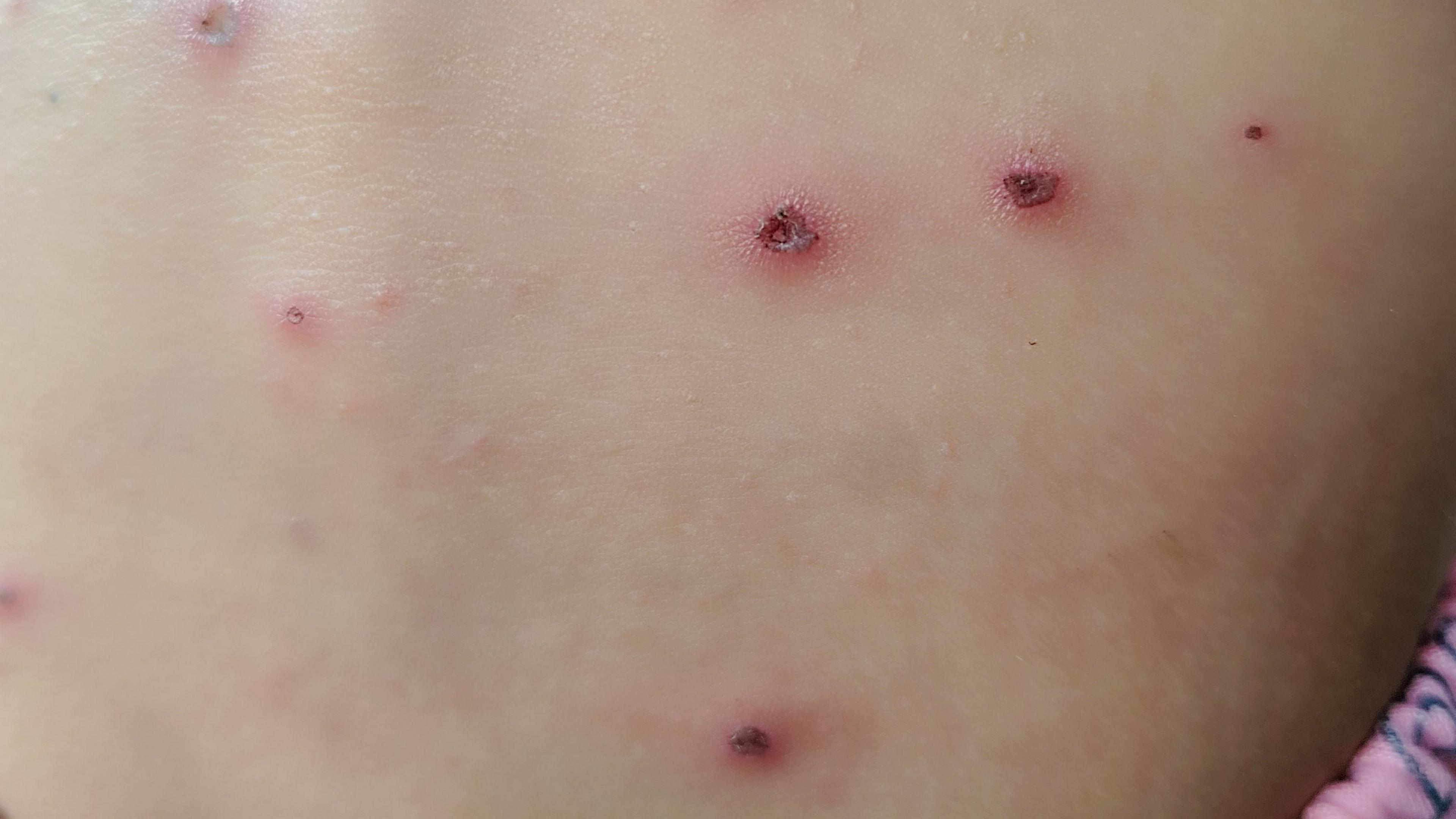
The chief medical officer says "immunisation is one of the most effective ways of preventing illness from infectious disease"
The first symptoms include a fever, muscle aches and pains and generally feeling unwell.
A couple of days later, an itchy, spotty rash appears.
These red or pink dots can appear anywhere on the body, including inside the mouth.
Some children might have only a few spots, but others can be covered from head to toe.
The spots fill up with fluid and become blisters before crusting over to form scabs, which eventually drop off and clear up.
You are contagious and can spread chickenpox to other people from two days before the first spots develop until they have all formed scabs, which is usually five days after they first appear.
Related topics
- Published29 August
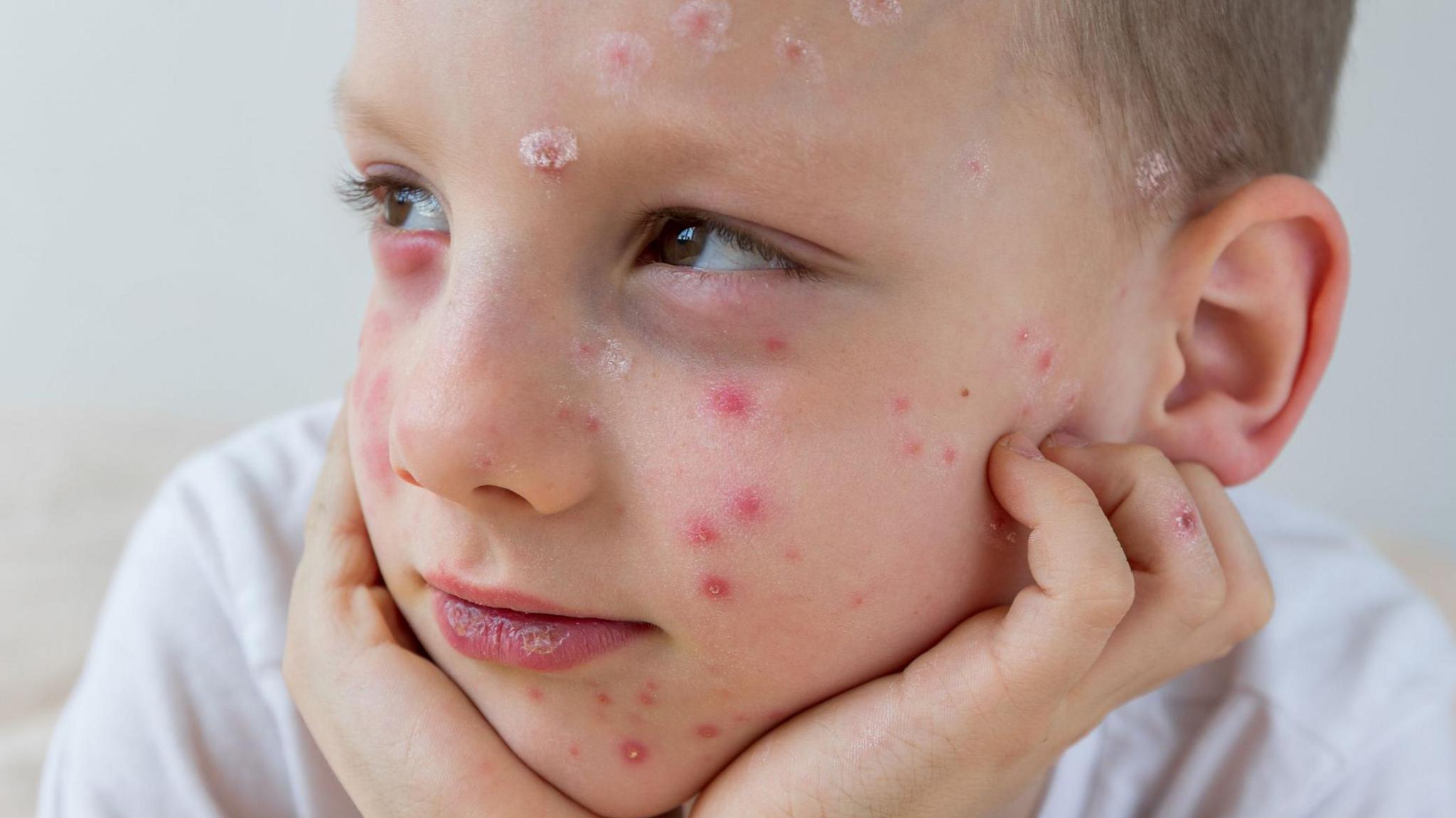
- Published29 August
